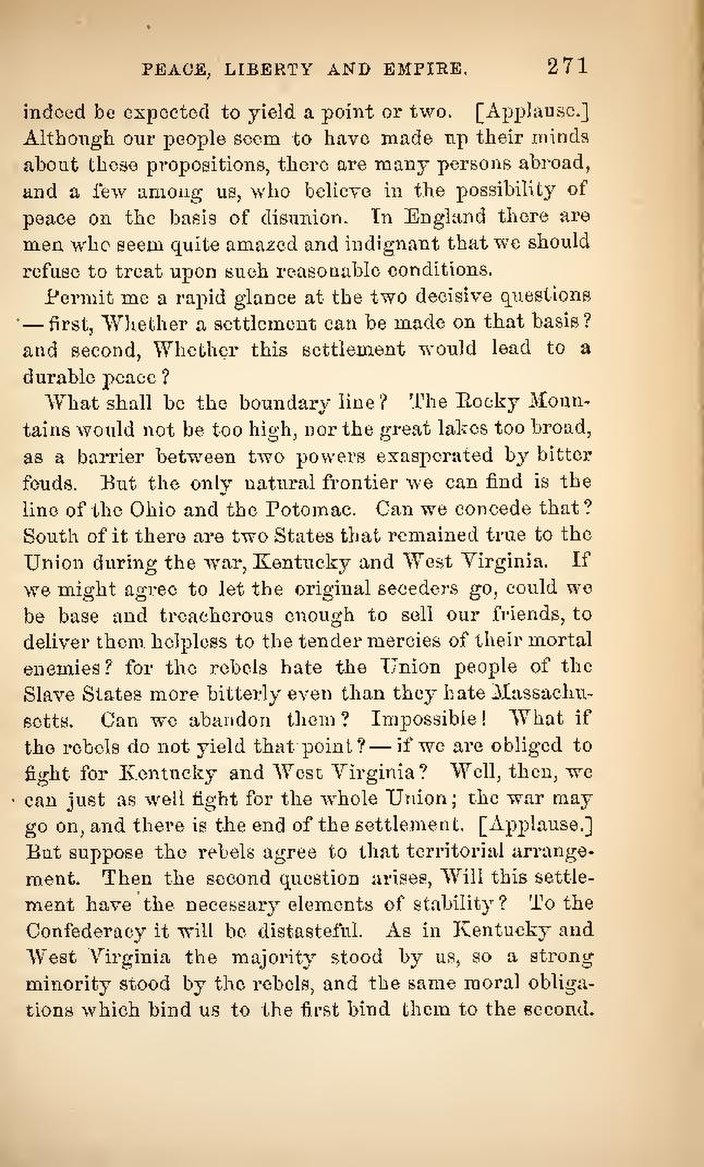indeed be expected to yield a point or two. [Applause.] Although our people seem to have made up their minds about these propositions, there are many persons abroad, and a few among us, who believe in the possibility of peace on the basis of disunion. In England there are men who seem quite amazed and indignant that we should refuse to treat upon such reasonable conditions.
Permit me a rapid glance at the two decisive questions—first, Whether a settlement can be made on that basis? and second, Whether this settlement would lead to a durable peace?
What shall be the boundary line? The Rocky Mountains would not be too high, nor the great lakes too broad, as a barrier between two powers exasperated by bitter feuds. But the only natural frontier we can find is the line of the Ohio and the Potomac. Can we concede that? South of it there are two States that remained true to the Union during the war, Kentucky and West Virginia. If we might agree to let the original seceders go, could we be base and treacherous enough to sell our friends, to deliver them helpless to the tender mercies of their mortal enemies? for the rebels hate the Union people of the Slave States more bitterly even than they hate Massachusetts. Can we abandon them? Impossible! What if the rebels do not yield that point?—if we are obliged to fight for Kentucky and West Virginia? Well, then, we can just as well fight for the whole Union; the war may go on, and there is the end of the settlement. [Applause.] But suppose the rebels agree to that territorial arrangement. Then the second question arises, Will this settlement have the necessary elements of stability? To the Confederacy it will be distasteful. As in Kentucky and West Virginia the majority stood by us, so a strong minority stood by the rebels, and the same moral obligations which bind us to the first bind them to the second.
